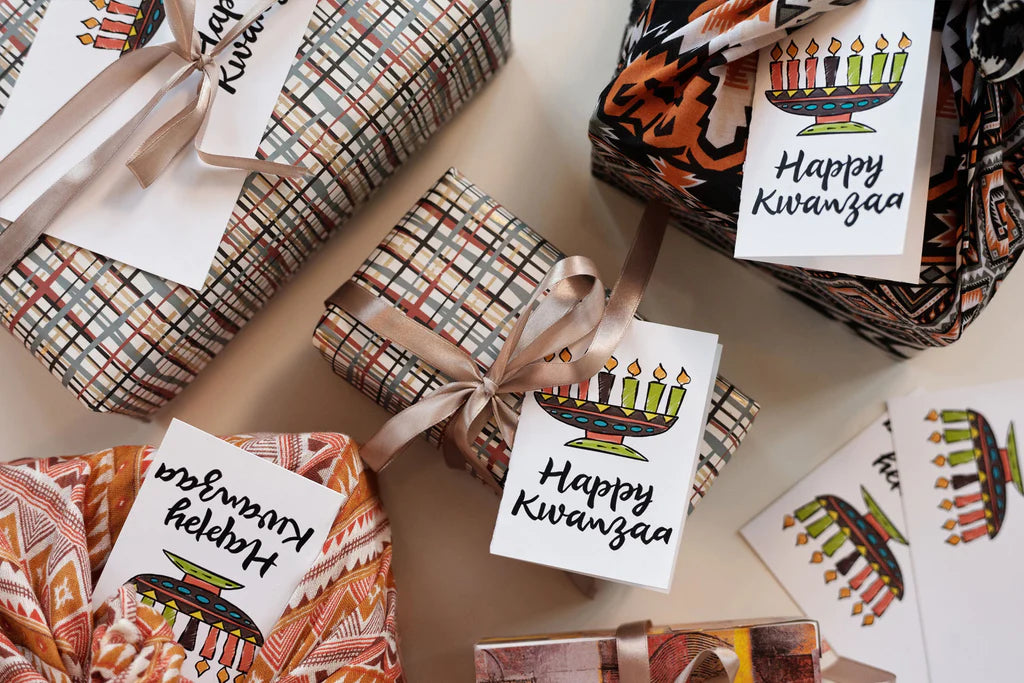
GIFT GIVING CULTURE AND AFRICA

GIFT GIVING CULTURE AND AFRICA
“The essence of gift-giving does not rely on materials things, but on something transcendent, as if it were the last and the only thing that one could willingly give, that gently makes the soul smile.” ― Danny Castillones Sillada.
The complexities behind gift-giving are something we hardly ever think of. And upon first glance, we are right not to do so, as it doesn't seem there is much to think about, anyway—they are just tokens we give to others out of appreciation, duty, or both.
But first impressions often lie, and the act of gift-giving is far more complex than what we might perceive. In fact, it is almost a fool-proof way to understand societies and their dynamics.
As such, analyzing gift-giving within the context of cultural relevance will give insight and make way for further understanding other customs, particularly those found within the African continent.
But what does it mean to give a gift to someone else?
The meaning behind a gift.
Academics have long known the complexities hidden behind the simple act of gift-giving. Marcel Mauss, a French anthropologist and sociologist, published a book simply called "The Gift," where he exposed the significance of gifts for societies as a whole.
He explains that gift-giving is a societal act with reciprocity at its core and ties together the giver and the receiver in a social link. As such, Mauss affirms gift-giving is never completely selfless—it always carries the expectation of receiving something back.
"Gift-giving usually implies an expectation that something would be given in return at some point, whether that be something material or that be a social relationship that is built through that gift or maintained through that gift." Says Dr. Christine Kray, an RIT anthropology professor.
For example, part of the Christmas tradition involves purchasing gifts for one another with the expectation of receiving one in return. Likewise, wedding gifts are expected from attendees as a way to reaffirm the social link between them and the married couple.
But it's not the same all over the world.
The importance of culture.
The expectations and significance we attribute to each gift given or received are not set in stone and, instead, are the result of their environment.
Dr. Michael Laver from RIT explains it succinctly. "There's no such thing as a gift in a vacuum," he says. "The whole cultural thing must be taken into account."
And by "the whole cultural thing," he means the contextual significance given to actions by others within the society. Dr. Kray enhances the reasoning by explaining the role of cultural meaning behind gifts in the following terms.
"All cultures have different meanings that they attach to gift-giving," says Kray. "Even within different cultures, there can be different patterns of gift-giving and different things they are trying to achieve by gift-giving."
Even during Christmas time in the West, Santa Claus' gifts are not exempt from this unspoken cultural rule. It "is tied to good behavior—naughty or nice," explains Laver. As such, Santa's gifts are the expected response received after behaving in a socially acceptable way.
This relationship between gift-giving and culture means that the nature of gift giving itself is a mutable thing that varies according to time and space. As such, something we deem universal, like gift-giving, often carries a significance we tend to overlook.
Africa is not exempt from this.
Gift giving: collectivistic or individualistic?
One of the critical aspects to consider when analyzing gift-giving is the nature of the cultures. Hofstede describes cultures according to five (5) different dimensions that define the way they behave or influence the individuals that live within, and one of them designates cultures as either individualistic or collectivist.
The United States is a highly individualistic society, as it places the person and their best interests above all else, while nearly all African countries focus on what is best for the group and the dynamic between people. This duality, of course, affects the way they conceive gift giving.
Belk (1983) affirms that the culture's nature conditions the expectations behind gift-giving. Specifically, he argues that they vary between individualistic and collectivistic societies.
As such, an individualistic society perceives gifts from the individual perspective. Belk argues this is in the pursuit of self-gratification, which can range from the mere satisfaction and happiness derived from giving a gift to the implicit reciprocity that would be owed. In stark contrast, collectivistic societies perceive gift-giving as an activity meant to strengthen group affiliations and solidify relationships and status within the society.
Although Africa is composed of over 50 countries with vastly different cultures and conceptions regarding gift-giving, they all have at its core a collectivistic concept of gift-giving. This means that African cultures tend to focus on creating social links and bonds according to societal structures rather than the individual aspects of the act.
Understanding gift-giving in Africa.
Of course, this is not saying that gift-giving within Africa is unrecognizable from American customs. Like Westerners, the many cultures in Africa gift others during birthdays, weddings, and other milestones. Likewise, gifting to express fondness is just as prevalent.
However, it is essential to acknowledge that there's always something else behind the gifts—a hidden set of societal rules, meanings, and expectations conditioned by the culture.
Valuable gifts may be welcomed in certain Western cultures and despised in other African societies since they may now be socially pressured to retribute something of equal value. Likewise, asking upfront for a gift from a stranger may be weird for Westerners but expected for a few African countries since that is a way to establish a friendship.
All that meaning hiding within a single package.
AFRICAN GIFT CULTURE
Although within Africa you can find common trends regarding gift-giving culture—for example, the tendency to value gift-giving as a social activity and duty—the truth is that the continent is not monolithic.
Indeed, you can find dozens, if not hundreds, of different cultures with particular nuances when it comes to the act of gift-giving. What works in a country might not apply to the neighbor one, so nuance is essential.
Curious? Take a look at the key aspects of African gift culture.
Timing is important—and different.
In the West, gift etiquette tends to restrict it to certain events—births, birthdays, weddings, and the holiday season. Likewise, it's considered polite to bring a gift whenever you visit someone else's home in some areas.
For the most part, Africa is not that different. Many countries, such as Zimbabwe and Papua New Guinea, reserve gifts for specific and joyous celebrations, such as weddings, graduations, and birthdays.
However, you might be surprised to know that gifts are also fairly common during bad or adverse events. For example, in Ethiopia, it is common and accepted to provide gifts to family or community members whenever they experience something good and bad, with gifts given to someone mourning receiving the name of firag.
Likewise, in Somalia, gift-giving is most common during times of need, such as illness, as members of the community tend to join forces to provide for the affected person.
Asking for a gift is not uncommon.
Another thing to consider is that certain cultures expect gifts during given circumstances, and not providing them for someone can be regarded as a social faux pas. For example, in Ethiopia, it is a given that, if you come from or visit another country or area, you bring back gifts for your acquaintances.
This expectation is also common in Zimbabwe, with the difference that Zimbabweans can directly ask you, upfront, for their expected gift. This custom can shock Westerns, who may consider it greedy or rude, but it is nothing further from the truth—it is, instead, a sign of trust and a desire to establish social links.
Make sure to use the right hand.
A peculiarity widespread across Africa's many countries is the importance of using the right hand to give a gift to someone. If the gift is too large, carrying it with both hands is acceptable, but you must always avoid using your left. The same principle applies if you are receiving a gift from someone.
Why? It's custom to consider using your left hand as something rude and offensive.
Not all African countries carry this belief but it is particularly prominent with cultures from Kenya, North and South Sudan, Somalia, and Ethiopia. It is not a universal rule, but odds are most people practice it to err on the side of safety.
When in doubt, bring food.
Gift-giving is a profoundly social action within the cultures of Africa. As such, it carries heavy significance and values and follows a set of rules that varies according to country and even according to areas within each nation. For example, alcohol, pork, or pig leather gifts might be offensive in heavily religious populations.
To err on the safe side, you should go for food. Dishes are a universally accepted gift across Africa and cultures, and in some is even expected to bring food whenever you visit someone else's home.
Some countries carry specific traditions regarding gifts of food. For example, in Kenya's rural areas, guests arriving at someone's home often bring tea leaves, sugar, coffee, or flour within a small woven bag called kiondo.
Gifts are always reciprocated.
In that regard, another common element across Africa is the expectation of reciprocity regarding gift-giving.
Since within the continent, gift-giving is usually a social act made to establish or reaffirm links with someone else, the expectation of giving a gift back is considered the confirmation of such a bond. Not returning a gift is extremely rude—almost an affirmation of the lack of care and concern you may have for the other person.
For example, in Ethiopia and Ghana, a gift is akin to a debt to repay in equal terms, so it's important to consider the recipient's financial circumstances, as they may not be able to afford the courtesy. Likewise, in Kenya, the kiondo woven bag previously mentioned should always be returned to the visitor with something filling it.
To refuse or not to refuse.
But despite the similarities, gift-giving culture in Africa is sometimes so dissimilar that it can cause issues from country to country.
One clear example of this involves whether or not it's appropriate to accept a gift right away.
Some countries like Zimbabwe are quite open when it comes to their expectations of gifts. As a culture that values gift-giving and places it on a pedestal, their gratitude is straightforward and honest—Zimbabweans often jump, clap, dance, and whistle to accept a gift. This open joy is because gifts are a gesture of friendship, which indirectly means that rejecting one is a nearly taboo offense.
On the other side of the spectrum, in Somalia and North and South Sudan is considered polite to reject a gift at least once, but givers must insist until the receiver accepts it.
Africa is a vast continent with many cultures, and you cannot expect a unique gift-giving etiquette. Despite the similarities, each country adds its unique take into the beautiful tradition of gifts.
































